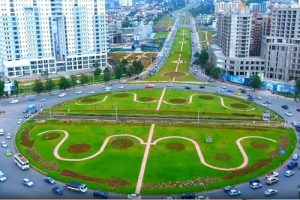
Ethiopia has experienced macro-economic challenges since long ago which is manifested in inflation, foreign currency crunch, unemployment, illegal trade, and budget deficit and, fluctuating currency exchange rate. The challenges were further exacerbated by external shocks like the war between Ukraine and Russia, and the disturbance of trade route on red sea because of the Yemeni Rebels group Hautis missile attack on ships fleet posed trade hurdles following the war between Israel and Hamas and caused price rising of basic commodities such as fertilizer, cooking oil and petroleum.
Earlier to the power assumption of the current reformist government, various measures were taken by the previous regime to tackle the problem including the official devaluation of local currency but failed to bring significant outcome.
In fact, the government had worked on infrastructures development such as roads, electric power generations, and constructed industrial parks and introduced new laws to attract foreign investment and enhance their production capacity. But due to power outage, shortage of inputs and spare parts, the manufacturing sector produced bellow its average capacity.
Besides, security challenge hampered the movement of products and shortage of capital and less trained labor force affected their production capacity. Aiming to tackle decades’ long macro-economic havoc, the government in power took bold measure recently by introducing currency exchange rate reform to be governed by demand and supply. It has embarked on implementing sustained macroeconomic policy with the aim of achieving continuous growth and ensuring comprehensive benefits for citizens.
Recently, the Minister of Planning and Development, Fitsum Assefa (PhD), has made explanation on Ethiopia’s full implementation of macro-economic reform policy. She noted the dire consequences of economic and development situations which had existed before the reform, failing to meet the development goals of the nation. Aiming to reverse the situation, the current government resorted to prepare a Homegrown Economic Reform Agenda.
Low level of domestic revenue and foreign exchange earnings, substandard level of project performance policy constraints and structural shortfalls, inability of the private sector to play the leading role in the economy, low level of production and productivity as well as dwindling employment opportunities were among the major features of the economy.
In order to alleviate these problems, she recalled that the government put in place a Homegrown Economic Reform Agenda to resolve the challenges and avoid the full-fledged economic crisis the country could have faced. The government focused on three pillars of the reform program during the first phase of the Homegrown Economic Reform Agenda implementation which registered concrete results, she said.
As a result, the financial and fiscal policy sub-sectors of the macroeconomic policy reform and measures taken to modernize government revenue administration and the level of government revenue grew to a much higher level. Measures taken for effective management of government expenditure, enhanced investments as well as completing projects on schedule with the desired quality have ushered in promising results in major sectors of the economy.
Hence, by resolving chronic structural challenges in public development enterprises, the government has managed to ensure their profitability she said, adding that by totally closing down commercial loans, it was possible to markedly reduce the huge stockpile of state debt that was accumulated over time.
In terms of introducing viable structural reforms, a number of legal reform programs were conducted to streamline pathways to better trade and investment as well as enhance production and productivity, where achievements have been made in various sectors through raising competitiveness, she explained.
Sustaining the results obtained during the first phase of the Home Grown Economic Reform Agenda, the government was able to effectively embark on the implementation of the macroeconomic reforms. According to the Minister, the decision made by the government was timely and would pave the way to the prosperity of the country.
Moreover, she noted that the government was conducting rigorous researches for the last five years in collaboration with local and international professionals on how to implement the programs and reduce the resultant negative effects and pressures of the development programs.
The Minister further stated that, the national macroeconomic reform program rests on four pillars whose implementation will enable the country to resolve outstanding economic challenges and ensure measurable and stable economic development.
Accordingly, by managing price fluctuations through short, midterm and long term measures and increasing production and productivity, the country can obtain concrete results.
The Minister added that, through increasing foreign direct investment and remittances as well as curbing illicit trade and contraband, the country can register tangible results. Further, the full implementation of the macroeconomic reform policy fosters social development, alleviating poverty reduction programs of the nation, she elaborated.
The digitalization of public services which started earlier will be further strengthened, Fitsum added. According to her, reducing the economic vulnerability of various sectors of the society and to reduce the negative effects that may surface up, the government will continue to subsidize the prices of commodities like fuel, fertilizers, and other essential items.
She added that, developmental safety net programs will be strengthened while salaries of public servants in low income bracket will be increased to enable them to withstand possible economic shocks.
Many countries which introduced the International Monetary Fund and the World Bank induced structural adjustment program and changed their exchange rate regime experienced some economic upside downs including inflation, unemployment and scarcity of basic commodities and to reverse the situation, the governments took subsidizing the poor segment of the society as a way out and enabled to withstand the challenge that the community faced.
In the case of Ethiopia however, obtaining loan in the form of hard currency because of the introduction of new exchange rate governed by demand and supply brings opportunities and among other tackles foreign currency crunch, boost export and reduce illegal trade. Currently because of shortage of hard currency, importers need to wait for months to obtain it and the delay of imported goods such as industrial and agricultural inputs in turn negatively affected production. Hence, such business havoc should be addressed sooner.
The availability of sufficient hard currency in the market enables exporters to boost their export and raise their income because of the rise of the value of Dollar. But to export more agricultural commodities, the security challenges should be addressed. Due to the conflict ignited in Oromia and Amhara regions the movement of human capital, agricultural and industrial inputs, and agricultural products are restricted which again critically affected the export sector and the economy at large.
The other thing that should be considered is building the capacity of institutions which implement the reform program. As it is understood in the past the government, in order to make public institutions efficient and effective, it implemented structural change and it also introduced new public servants’ evaluating mechanism but still some institutions found ineffective and failed to deliver as per the institutions required.
Therefore, appointing committed leaders in the institutions is helpful to implement the reform program. The other thing that should be addressed critically is corruption. The government repeatedly announced that corruption has been rampant and citizens always complain that they do not get services in some public institutions without paying bribes. Investors also complain that the inefficient bureaucracy made them to do their business in snail pace. Some even lost hope on the business environment and demand the government to take remedial actions.
The auditor general while it presented its annual audit report to the House of Peoples Representatives revealed corruption has been rampant in various public institutions and such practices critically affected the nation’s economy and unless the situation is reversed, the money obtained in the form of loan from the International Monetary Fund may find its way to the unknown destiny. Therefore, all ill practices which do not go in line with the government economic reform should be halted
BY ABEBE WOLDEGIORGIS
THE ETHIOPIAN HERALD TUESDAY 13 AUGUST 2024





